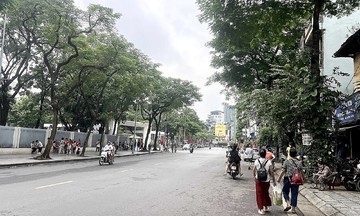Dr. Matthew Facciani, a neuroscientist and psychologist at the University of Notre Dame, analyzed 279 studies to understand why people tend to believe in narratives lacking empirical evidence.
The desire to uncover hidden "truths": When faced with complex, uncertain events, or lacking trust in mainstream sources, people often seek alternative explanations. Conspiracy theories offer a sense of uncovering a hidden truth, providing clarity even if the belief is false.
The desire for control and safety: Feelings of helplessness, anxiety, and loss of control, especially during crises, create fertile ground for conspiracy theories. Believing a powerful force is pulling the strings makes the world seem more predictable. These beliefs provide a psychological "shield," allowing people to blame someone or something for negative events.
 |
The desire for control and safety leads many to believe in conspiracy theories. Illustration: TIME |
The desire to belong to a special community: People sometimes believe in conspiracy theories to feel special, superior, or part of an elite group. This belief fosters an "us vs. them" mentality, where "we" know the truth and "they" don't. This tendency is stronger in those who feel isolated or distrustful of outsiders. The belief that friends share the same views reinforces and stabilizes these beliefs.
In other words, conspiracy theories fulfill important psychological needs: they help people feel more certain, safe, and connected.
However, this comfort comes at a cost, including vulnerability to misinformation, increased societal distrust, and deep divisions.
Dr. Facciani's research indicates that the key factor isn't the actual circumstances, but the feeling of uncertainty, lack of status, or lack of support. Someone with an objectively good life can still believe in conspiracy theories if they feel deficient in these areas.
Understanding the psychological roots of belief in conspiracy theories is the first step in finding appropriate responses, through education, empathy, or addressing the causes of insecurity and isolation in society.
Minh Phuong (According to Psychology Today)












